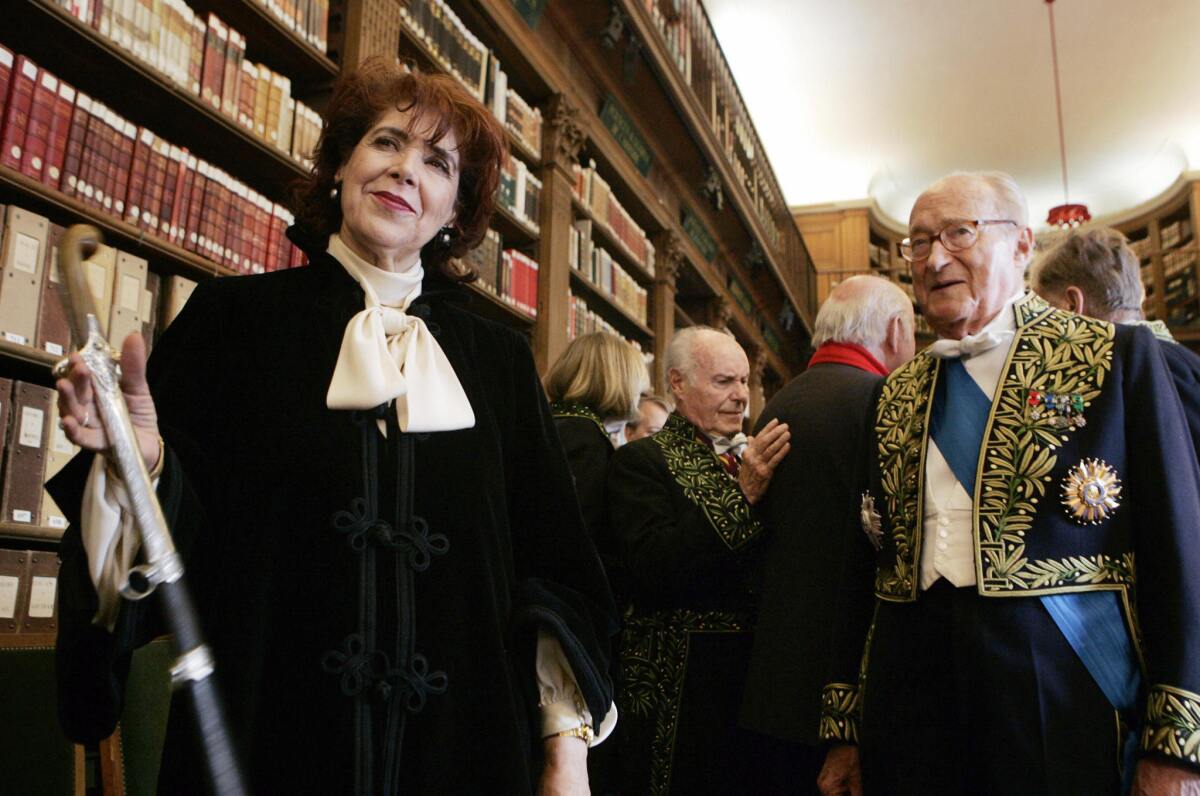Assia Djebar dies in Paris at 78

- Share via
Writer and filmmaker Assia Djebar died in Paris on Friday at age 78, her publisher confirms. In recent years, the Algerian-born author was among those rumored to be in contention for the Nobel Prize in Literature.
Djebar was born Fatima-Zohra Imalayen on June 30, 1936, in Cherchell, Algeria. She moved to France at 18 to study; she was the first Algerian woman admitted to the Ecole Normale Supérieure de Sèvres. She earned a history degree from Le Sorbonne and the following year, 1957, published her first book, the novel “La Soif” (“The Thirst”). About a modern young Algerian woman, it was published in English as “The Mischief”; Kirkus dubbed it a “precociously decadent debut.”
American publisher Seven Stories Press describes Djebar’s work as “marked by a regal unwillingness to compromise in the face of ethical, linguistic and narrative complexities.” Three of her books have been published in English by Seven Stories: the novel “So Vast the Prison,” a short story collection, “The Tongue’s Blood Does Not Run Dry,” and “Algerian White.”
Recent works include “La Disparition de la Langue Française-Roman (“The Disappearance of the French-Language Novel”) in 2003 and “La Femme sans Sépulture” (“The Woman Without a Burial Place”) in 2002.
She published more than 15 books, often dealing with issues faced by Muslim women. Her books have been translated into 23 languages.
Djebar wrote in French, and while that was at times considered controversial, it also led to her being the first Algerian (and fifth woman) accepted into France’s prestigious, centuries-old Académie Française.
For many years, she split her time between France and the United States, where she most recently had a chair at New York University. She had previously taught at Cambridge, Strausbourg, Berkeley and Louisiana State University.
The novelist and professor was also a prize-winning filmmaker. She directed “La Nouba des femmes du mont Chenoua,” (“The Song of the Women of Mount Chenoua”), which won the International Critics’ Prize at the Venice Biennale in 1979, and the documentary “La Zerda ou les chants de l’oubli” (“Zerda or the Forgotten Songs”).
Her many literary awards include the Frankfurt Book Fair’s Peace Prize, Italy’s International Prize of Palmi, the Marguerite Yourcenar Prize for Literature, and the Neustadt International Literary Prize.
Twitter: @paperhaus
More to Read
Sign up for our Book Club newsletter
Get the latest news, events and more from the Los Angeles Times Book Club, and help us get L.A. reading and talking.
You may occasionally receive promotional content from the Los Angeles Times.











